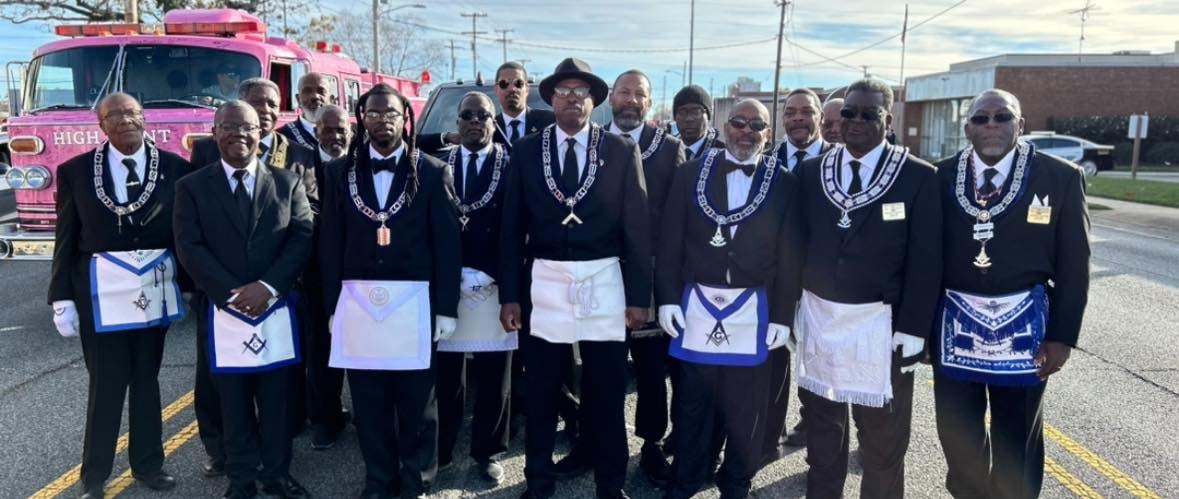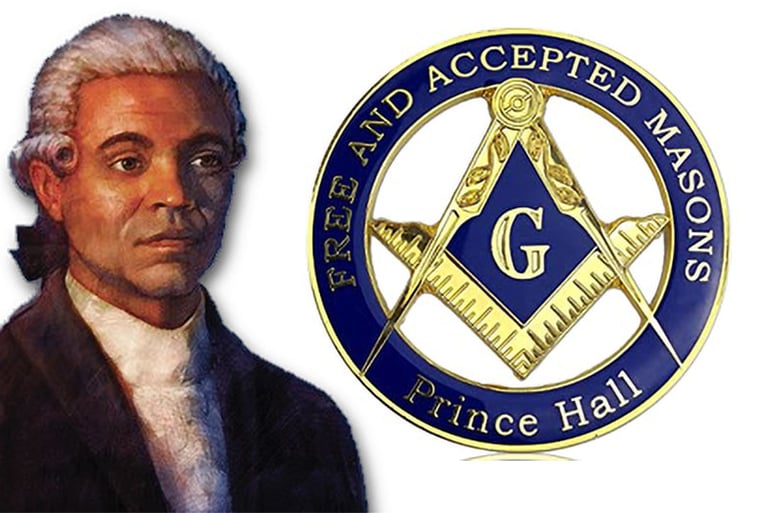Toussaint L'ouverture Lodge No. 524
The Prince Hall Grand Lodge of Free and Accepted Masons of North Carolina granted High Point's Toussaint L'Ouverture Masonic Lodge No. 524 a charter on December 14, 1916. Worshipful Master Jessie Edmondson, Senior Warden S. R. Cole, and Junior Warden John Henley became the first lodge officers. The fraternal organization initially met in a house on High Street but soon moved to the Odd Fellows Hall on Washington Street. African American community leaders, including Dr. Gaylord, Ed Wheeler, Fred Lander, Will Sanders, Robert Beatty, Adam Brown, T. W. White, Ellis Cornelius, and Paul Wright, served as Worshipful Masters. The lodge met in Pythian Hall on Centennial Street from 1946 until 1963, when their new building on East Washington Street was completed under the leadership of Worshipful Master Aaron Lightner. William J. Burton and Thomas Fuller co-chaired the Building Committee and the Board of Trustees during this period. Local realtor George Monk orchestrated the construction process, and the Order of the Eastern Star's White Rose Chapter No. 157 (a fraternal organization consisting of women and men related to masons) made the first mortgage payment and continues to meet in the building.
- PM Daniel Bell


Prince Hall
Prince Hall (c. 1735–1807) was an important African American abolitionist, civil rights leader, and founder of Prince Hall Freemasonry, the first African American branch of Freemasonry in the United States.
Born either in Barbados or New England, Hall was a free Black man who worked as a leatherworker in Boston. He became an advocate for the rights of African Americans, including education, equal treatment, and the abolition of slavery. Hall also campaigned for the inclusion of Black children in public education.
In 1775, Hall and fourteen other free Black men were initiated into Freemasonry through a British military lodge stationed in Boston. After facing rejection from existing American Masonic lodges due to racial discrimination, Hall established the African Lodge No. 1 in 1784, later renamed African Lodge No. 459 upon receiving a charter from the Grand Lodge of England. This laid the foundation for Prince Hall Freemasonry, which became a crucial institution for Black social, spiritual, and political life.
Hall also petitioned the Massachusetts legislature for the abolition of slavery and fought for the rights of Black soldiers in the American Revolutionary War. His leadership and advocacy made him a key figure in early African American history and the broader fight for civil rights.


Toussaint L'ouverture
Toussaint Louverture (1743–1803) was a prominent leader of the Haitian Revolution, which led to the abolition of slavery and the establishment of Haiti as the first independent Black republic.
Born into slavery on the French colony of Saint-Domingue (now Haiti), Louverture gained his freedom in the late 1770s and became a skilled plantation manager. Influenced by the ideals of the French Revolution and driven by a desire for freedom, he joined the 1791 slave uprising against French colonial rule.
Louverture quickly rose to leadership due to his military skill, strategic thinking, and diplomatic abilities. He successfully navigated alliances with the Spanish, British, and French forces to strengthen the revolutionary cause. By 1801, he had taken control of the entire island of Hispaniola and abolished slavery. He also established a constitution that declared him governor for life, promoting autonomy while maintaining ties to France.
However, Napoleon Bonaparte viewed Louverture's growing power as a threat and sent troops to regain control. Louverture was eventually captured in 1802, deported to France, and imprisoned, where he died in 1803. Despite his death, the revolution continued, culminating in Haiti’s independence in 1804.
Louverture is remembered as a brilliant military leader and a symbol of the fight against oppression and slavery.


